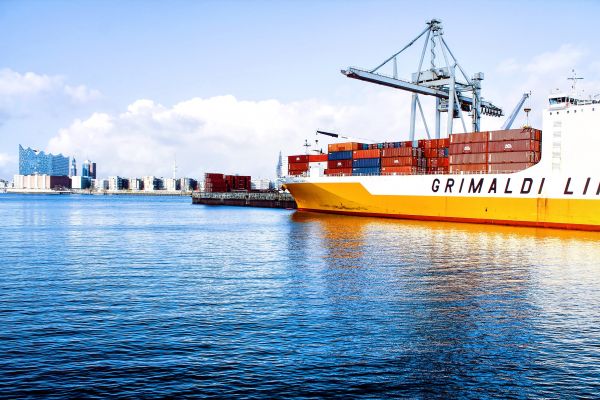Shipping Western Tableware (Knives and Forks) from Guangzhou/Shenzhen to Wicklow Port, Ireland: A Comprehensive Overview
1. Shipping Options: FCL and LCL
There are two main shipping options available when exporting goods from China to Ireland: Full Container Load (FCL) and Less-than-Container Load (LCL).
FCL (Full Container Load): If you’re shipping a large quantity of knives and forks, opting for a full container load might be the most efficient choice. You can ship either a 20-foot container (20FT) or a 40-foot container (40FT), depending on the volume of your goods. FCL shipments are typically faster and more secure since your goods are not mixed with those of other shippers.
LCL (Less-than-Container Load): For smaller shipments that don’t require an entire container, LCL is the ideal choice. With LCL, your goods will be consolidated with other cargo in the same container, and your share of the container space is calculated based on the volume of your shipment. Although LCL is cost-effective for smaller shipments, the transit time is slightly longer because of the need to consolidate and deconsolidate cargo.
2. Transit Time
For both FCL and LCL shipments from China (Guangzhou/Shenzhen) to Ireland, the typical sea transit duration is around 40 days. This time frame includes the port-to-port journey, loading, unloading, and any necessary customs clearance procedures at both the port of departure and destination.
- Guangzhou to Wicklow Port: The route involves shipping the cargo across the globe, typically via the South China Sea, through the Suez Canal, and into European waters. Once the shipment arrives at the Wicklow Port, the goods will go through customs clearance before being delivered to the final destination.

3. CIF (Cost, Insurance, and Freight)
When shipping goods on a CIF basis, the seller (exporter) assumes responsibility for the costs of shipping, insurance, and freight until the goods reach the destination port—in this case, Wicklow Port. This includes:
- Cost: The price of the product and the cost of freight transportation.
- Insurance: Coverage for potential risks such as damage or loss during the sea voyage.
- Freight: The cost of moving goods by sea from the port of origin (Guangzhou/Shenzhen) to the destination port (Wicklow).
Once the goods arrive at Wicklow Port, the buyer is responsible for clearing customs and any additional charges.
4. Packaging of Western Cutlery (Knives and Forks)
Proper packaging is crucial when shipping Western cutlery to ensure the items are protected from damage during the long transit journey. Here are some tips on how to effectively package knives and forks:
Individual Wrapping: Each piece of cutlery should be individually wrapped in protective materials such as bubble wrap or foam sleeves. This helps prevent scratches, dents, or other damage during transit.
Boxing: Once wrapped, the items are typically packed into sturdy cardboard boxes. The boxes should be strong enough to withstand the pressure and handling of sea freight, and the internal space should be filled with packing materials such as foam peanuts or air pillows to minimize movement inside the box.
Sealing: Boxes should be securely sealed with high-quality packing tape to prevent them from opening during transport. The tape should be applied to all seams and edges to ensure the box remains intact.
Palletizing: For FCL shipments, knives and forks are often packed onto wooden pallets for easier handling and stacking in the container. The pallets are wrapped in stretch film to ensure stability and protect the goods from moisture or dust.
Labeling: It is essential to label each box with clear and accurate information, including the consignee’s details, product description, quantity, and any special handling instructions. This is particularly important for customs clearance purposes at the destination port.
5. Customs Clearance
Upon arrival at Wicklow Port, the goods must clear Irish customs before being delivered to the buyer. As part of the CIF agreement, the buyer is responsible for any customs duties and taxes that may apply. Customs documentation, including the commercial invoice, packing list, and bill of lading, will be required to clear the goods.



